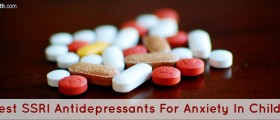
What should be known about fluoxetine?
Fluoxetine is a medication that belongs to the group of antidepressants called selective serotonin reuptake inhibitors, that are related to the levels of serotonin in the brain. It is not available without a prescription, and it can be used in the treatment of conditions that are related to the brain. Among them are depression, panic disorder, obsessive-compulsive disorder and even bulimia, since it is very frequently caused by anxiety or some psychological problems. A number of other conditions can be treated with this medication such as; alcoholism, anorexia, autism, personality disorders, post-traumatic stress disorder and obesity. As for the use of this medication in children, it is officially approved for the treatment of depression in those who are at least eight years old. As for obsessive-compulsive disorder, children should be at least seven if this medication is to be used in their treatment.
Risks and side effects that can occur
Before beginning to use any medication, it is highly recommended to gather all the necessary information (or at least as much as possible) regarding the possible interactions, side effects and warnings. It is particularly important to be aware of such information in cases of antidepressants. Those, who should be cautious about the use of fluoxetine, are people who have recently had a heart attack or who have some heart problems, those who suffer from diabetes, bipolar disorder, liver diseases, or many allergies. People who have a family history of manic depression or history of suicidal thoughts or attempts should consult with their doctor. The same goes for pregnant women. All of them belong to the risk group, which means that they are more likely to react negatively to this medication and to develop some unwanted symptoms. Side effects that are particularly serious and require medical help are aggressiveness, anxiety, panic attacks, restlessness, extreme and unusual changes of the feelings, behavior and mood, as well as symptoms of serotonin syndrome, which include rapid heart rate, hallucinations, changes in the blood pressure and heart rhythm, fever, and even seizures or coma. On the other side, there are those that are usually only temporary and that do not require medical help like nausea, headache, diarrhea, loss of appetite and dry mouth.






-Uses%2C-Side-Effects-And-Risks_f_280x120.jpg)










Your thoughts on this
Loading...